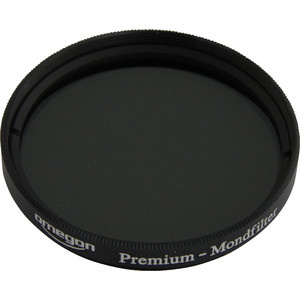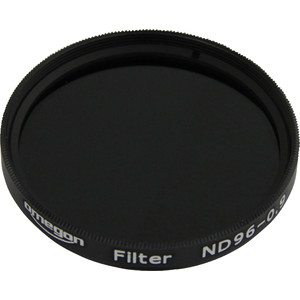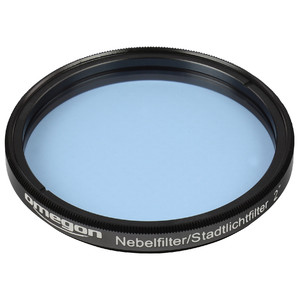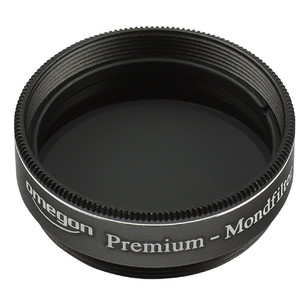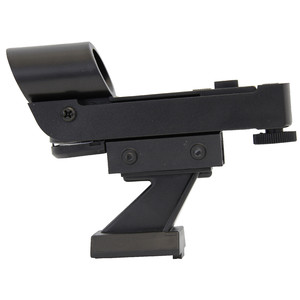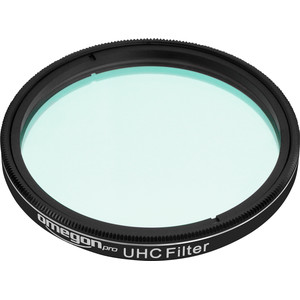Tyvärr har den här beskrivningen ännu inte översatts till svenska, så du hittar en engelsk artikelbeskrivning här.
Omegon premium Moon filter - to ensure that your lunar observing is fun
Does the Moon appear far too bright when observing it through your telescope? The Omegon Moon filter reduces the brightness and increases contrast. It screws easy into your eyepiece, permitting relaxed observing and stopping the Moon from dazzling you.
The advantages in a nutshell:
- Omegon neutral density filter - tones down moonlight for more comfortable observing
- neutral image - the Moon retains its natural appearance
- high contrast - discover thousands of craters and fine structures
- for your eyepiece - fits onto any eyepiece with a filter thread
The Moon is too bright - tone it down a bit
The Moon can be so bright that you can easily read a newspaper by its light at night. But anyone looking through a telescope will note just how bright the Moon really is. It often irritates the retina and dazzles the eye in unpleasantly. No wonder - the full Moon is 25,000 times brighter than the brightest star in the night sky. So having a neutral density filter is definitely an 'ace up your sleeve' when observing the brighter lunar phases.
Filter with 50% light transmission - for small telescopes or the less bright lunar phases
This filter blocks about half of the incoming light. This makes it well-suited for telescopes with small apertures. These include, for example, refractors which can accommodate a 2" eyepiece.
Great contrast - even with bright planets
This filter is ideal for use when observing bright planets, in large or small telescopes. Venus can be very bright and drown out everything else in the field of view. This ND 0.3 neutral density filter increases contrast and make the phases of Venus easier to observe.
Polished glass for a clear view
You are purchasing a first class product with the Omegon Moon filter - a polished glass filter held in an anodised aluminium mount. The filter glass has been ground and stained throughout the entire glass volume. This avoidance of using a superficial coating means that it cannot wear out, even after many years of use.
A Moon filter belongs in the eyepiece case of every amateur astronomer. But, above all, it is a must for comfortable lunar observing.

